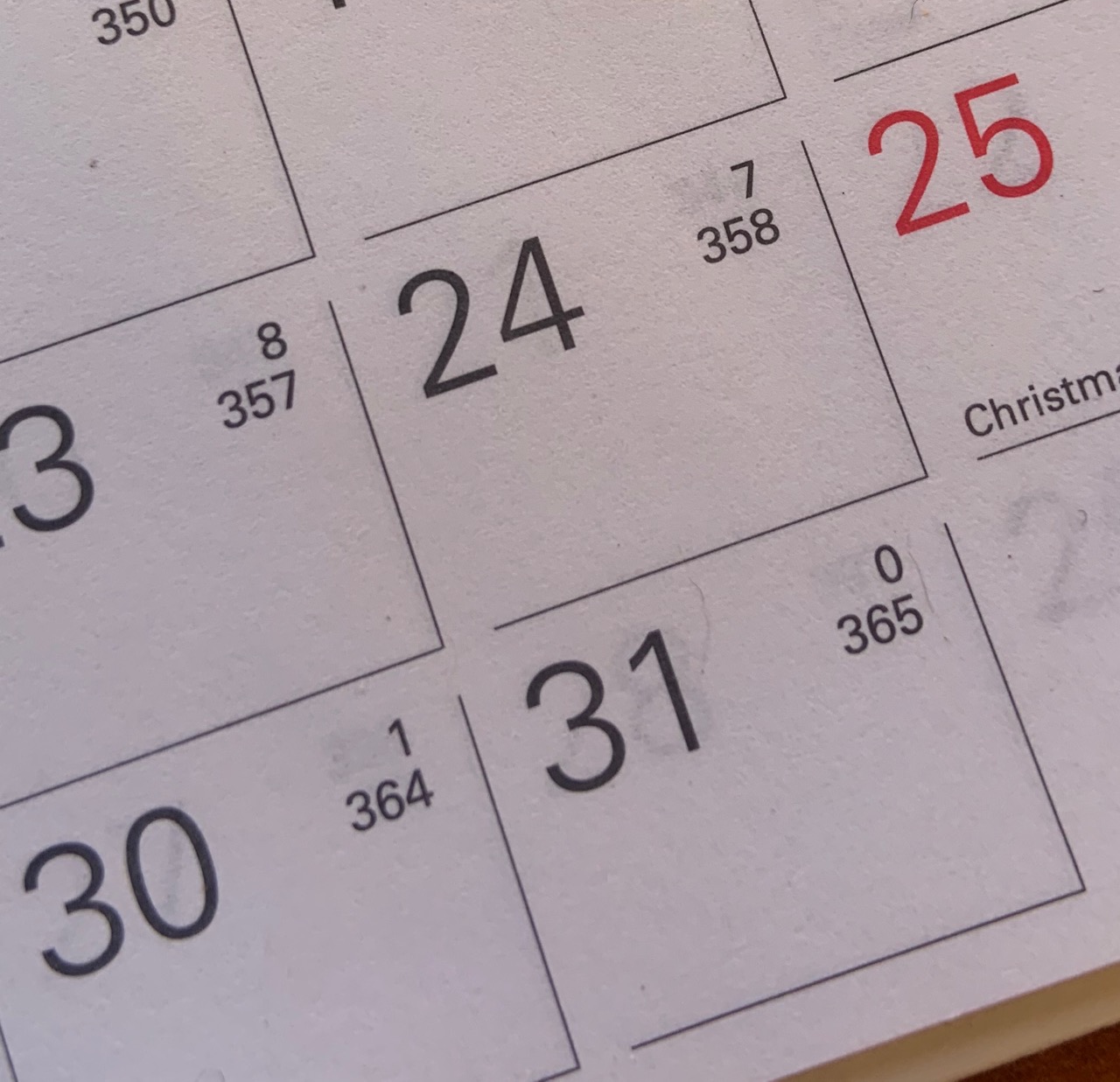
By Rev. Ken Yamada
As the year ends, let’s reflect on the importance of time.
This week, there are two important Buddhist services marking time—the Year End service and New Year’s Day service. I stress the term “Year End” (instead of New Year’s eve) because it’s a time to look back on the past year and think about all that has happened. The New Year’s Day service commemorates a beginning and starting out fresh.
But aren’t these merely random markers of time? After all, each day flows mostly indistinguishable from the next.
Shinran Shonin, founder of Jodo Shinshu Buddhism, paid homage to Indian Buddhist master Nagarjuna (2nd-3rd cent. C.E.), who famously taught the Middle Way, explaining how the true reality of life lies not in extremes of existence versus non-existence, but rather, in-the-middle (in-between). For example, he said time has no “beginning” or “ending.” Yet, people define life in terms of “birth” and “death.”
Personally, I struggle with the idea of time. Time seems to pass quickly, I’m getting older, and surely my life is heading to an end. I’ve looked into the notion of time and discovered some interest tidbits.
For most of human history, people didn’t keep close track of time, other than the basics of day and night and the changing seasons. The first clocks were probably sun dials in 2000 B.C.E., in which the sun’s movement cast a moving shadow. Obviously not effective on cloudy days or at night. Three thousand years ago, Chinese “water clocks” kept track of time through a series of cascading vases in which water uniformly flowed into a large bowl. Helpful, I suppose, to a privileged few.
Early in this country’s early history, each town had its own version of time. Noon was when the sun was at its highest point, which was different depending on where you lived. The railroads forced cities and towns to adhere to a standard time so trains could keep a schedule.
It bogles my mind to think that morning for me, means nighttime for others and other time zones across the world. I read that for “black holes” in outer space, time stands still.
What is the importance of time? I once read a story, I don’t remember where, about a boy in a prison cell, where each day was indistinguishable from the next. Inmates felt lost and hopeless. The boy began keeping track of time, marking the days on the wall and regularly announcing the time. Life once again had meaning and the prisoners regained a sense of hope.
In this way, I think time gives our lives meaning. By observing birthdays, holidays, weekends, year end, and New Year’s, we can better define ourselves and see some kind of shape to our lives.
In Jodo Shinshu Buddhism, we have services that are important time markers: Hanamaturi (Buddha’s birthday), Obon (summer memorial), O-Higan (Spring and Fall equinox), and Shinran Shonin’s memorial (Hoonko), among others.
It’s true we’re part of an infinite flow of life, but it’s hard to see unless we contrast it with the finite nature of our lives. Then we can truly see impermanence and fully appreciate our lives.
Nagarjuna explained the finite and infinite are one, when he said, “Samsara is itself Nirvana.” This represents the Oneness of opposites, which Shinran also emphasized, when he quoted Nagarjuna in his Shoshinge hymns:
A great sage called Nagarjuna would come into this world,
To destroy utterly one-sided views of being and non-being…
Marking time is important to understanding life. As this year ends, let us look back and reflect on what it means to live.
-Rev. Yamada is editor at Higashi Honganji’s Shinshu Center of America.

